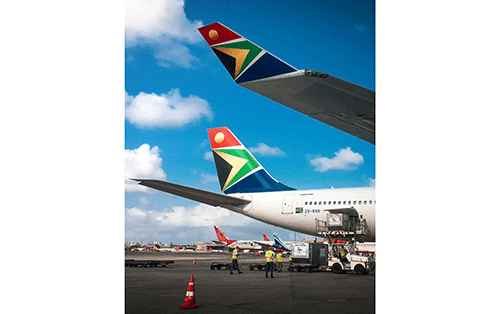The International Air Transport Association (IATA) has urged South Africa’s (SA’s) new government of national unity to continue prioritising the development of its aviation sector as a critical driver for economic growth and job creation.
“South Africa’s aviation industry is poised for significant growth over the next 20 years, adding 345 million additional passenger journeys by 2043. With aviation generating US$6 in economic activity for every US$1 spent, this expansion will inject billions into South Africa’s GDP, and create thousands of new jobs.
It is important for the new government to keep this as a strategic focus. The economic and social benefits of aviation will be maximised with a sharp policy focus on keeping costs low, providing sufficient capacity to grow, monitoring the cost-effectiveness of regulations, and achieving net zero carbon emissions by 2050,” said Kamil Al-Awadhi, IATA’s Regional Vice President for Africa and the Middle East.
Priorities to strengthen South Africa’s aviation industry are being addressed at IATA’s Wings of Change Focus (WOCFA) underway in Johannesburg. It has brought industry leaders
and representatives of governments and aviation safety and training entities together with the purpose of identifying concrete actions to strengthen aviation in Africa, and optimise it for broader sustained economic growth.
Specifically, IATA urged the new government to focus on infrastructure cost. This would require continuous consultation between Airports Company South Africa (ACSA) and Air Traffic Navigation Services (ATNS) and their airline customers. IATA noted that such consultation must ensure the services provided are aligned with airline needs, efficient, and cost-effective.
SA has also been asked to concentrate on safety leadership. This would be to maintain a leadership role in southern Africa on safety, particularly
with respect to the implementation of ICAO Standards and Recommended Practices. According to IATA, South Africa’s Civil Aviation Authority (SACAA) has already shown a great example of leadership on global standards by recognising the IATA Operational Safety Audit (IOSA) as
an acceptable means of compliance in alignment with South Africa’s aviation safety
regulations.
Additional focus areas for South Africa include skills development as well as sustainability.
“This is a win-win agenda for the new government—facilitating trade, encouraging investment and addressing unemployment. South Africa’s aviation sector has had challenging times in recent years.
But that has not changed the fundamental fact that aviation is a critical enabler for economic growth and prosperity. If the new government keeps a focus on safety, sustainability, skills development and costs, it will chart a course to renewed strength in aviation that will have a positive impact across the economy,” said Al-Awadhi.


